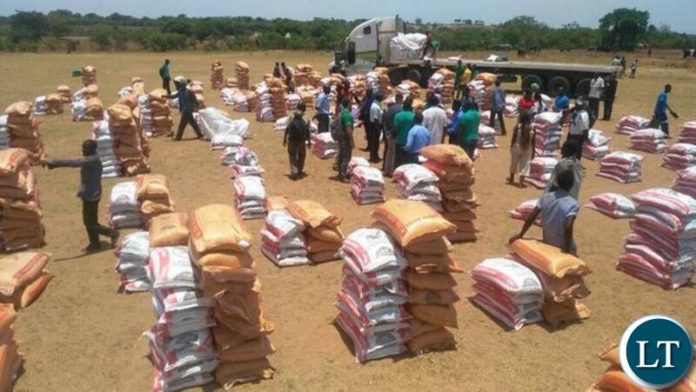The Small Scales Farmers Development Association – SAFADA says the government should not rush into engaging suppliers under the New Farmer Input Support Program – FISP before screening the program.
Small Scales Farmers Development Association – SAFADA President Boyd Moobwe stated that the government should first address all the issues which are affecting the procurement and distribution of the farming inputs before engaging the suppliers for the next farming season.
“We understand that the government is planning to kick start the procurement process and they want to ensure that by February this year, they suppliers are being identified and given tasks to supply inputs to farmers on time, this is a very good move and we really appreciate and commend the government for such plans, infact as SAFADA we have several times called on the government to plan early rather than waiting for the marketing period to start and see what is happening there and then, so the way it is now, I think it’s a good thing that the government is doing and we are very much ready as SAFADA to work with the government, infact, we have volunteered to work with the procurement department,” he said
“We need to scrutinize the process and check the system how fertilizer is flowing from the suppliers to the farmer and how the government is making these arrangements because we believe that it’s not a procurement issue but its a system which is enforced to implement the FISP program,” he added
Mr Moobwe has since urged the government should find a way of subsidising fertilizer as the cost of the fertilizer has continued to increase.
Meanwhile, Economist Boyd Muleya is urging the government as it undertakes a review of the Farmer Input Support Program – FISP to transition to a compressive agricultural program, to focus on deliberate measures that will help revamp Zambia’s agriculture sector.
Mr Muleya said that much as the compressive agriculture programme can address some of the challenges faced in the years of implementation of the FISP, without introducing other tiers targeted at actualizing farming as a business, the new programme may not yield desired results.
Mr Muleya who is also Head of Research at the Center for Trade Policy and Development – CTPD stated that since FISP in its current form is a subsidy and a social safety net programme, there is need to invest more in another programme that will provide returns and growth for both the sector and the economy.
Last week, Agriculture Minister Reuben Mtolo disclosed during a stakeholders meeting on the review of the Farmer Input Support Programme –FISP-for 2022 in Lusaka,that the government has made tremendous progress in coming up with a compressive agricultural program.
Mr Mtolo mentioned that the meeting being held should endeavour to address all the challenges which were faced in the 2022 farming season, hence, directing the procurement officials under his Ministry to start advertising for the distribution of farming inputs for the 2023/24 farming season by February 2023.
“We are not crossing February without advertising for the fertilizers and seed,” he said
Mr Mtolo said although over 90 percent of the inputs for the 2022/23 farming season have been delivered countrywide, delaying distribution going forward is unacceptable.
Mr Mtolo has also stressed on the need to address the bottlenecks experienced in the current farming season in order for the country to meet the food demand both locally and in the region.
The Minister questioned as to why the fertilizer given to farmers under FISP ends up in shops being sold.
“Are we doing the right things in identifying our farmers, do we really know the farmers within our areas, are they genuine farmers,” he questioned
At the same event, Secretary to the Cabinet Patrick Kangwa warned against corruption in the procurement and distribution of farming inputs.
“Those of us who have been prone to corruption and malpractice don’t say you where not warned, we are telling you in good time, as President Hakainde Hichilema has made it very clear that no one will stand in the way of the development of the Zambian people and for me, as civil servant number one I will ensure that none of you here will stand in the way for us to improve FISP delivery, if you are corrupt, watch the space,” Mr Kangwa warned



The major sticking point with the current form of FIsP is/are the beneficiaries. This list of beneficiaries is the one that is abused. This stems from the system that is used to compile beneficiaries (ZIAMIS). It’s a closed system meaning only officials associated with the ministry have access to update it. If this system can be open or transparent to stakeholders (beneficiaries) just for info not updating the way enapsa or e nhima is it can help to reduce the cheating that is there.
Timely advice. Let those who have ears hear and listen.
This has been chaotic to say the least.
Comments are closed.